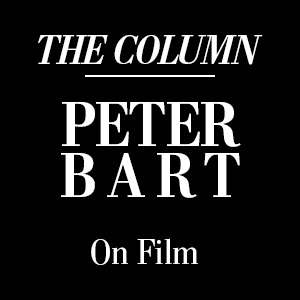It had all the elements of a good action movie – jeopardy, revenge, a mega budget – with even some casualties thrown in (albeit corporate).
The Bob Iger vs Nelson Peltz (who?) war is over now and Iger has won. But some filmmakers and ticket buyers might wonder: Did any of it matter? Would a modest change on the Disney board of directors have had any impact on the future of entertainment? (Peltz himself runs a hedge fund called Trian Partners and has no background in entertainment.)
To be sure, it’s been a good show, albeit a throwback to an era when Hollywood was run by Big Personalities, not monoliths like Amazon or Apple. The battles of that era were ego wars, not proxy wars — Redstone vs Diller or Murdoch vs Ted Turner, with bewildered stars and their reps huddled in the middle.
But now Iger has won – again. The onetime TV weatherman has played a winning hand over a succession of rivals and doubters dating back to the Michaels (Eisner and Ovitz) and Jeffrey Katzenberg and even an occasionally skeptical Disney relative or heir.
Walt’s brother, Roy, once disdainfully critiqued Eisner’s grandiose Disney headquarters building and Eisner’s mania for “branding.” Still, he understood that, during Eisner’s 20-year reign starting in 1984, Disney income soared from $100 million to $4.5 billion.
And under Iger’s acquisitive surges, Disney had grown into a nation-state encompassing theme parks, cruise ships, streamers, sports channels and residential communities — and even an occasional movie.
In contrast to other mega corporations, some 33%-40% of Disney’s shareholders are non-institutional – families and inherited trust funds and moviegoers. Its share price has jumped some 35% since the start of the year.
For every adversary, like Marvel’s Ike Perlmutter, there’s been an ally, like George Lucas. And for every enemy, like Florida’s governor Ron DeSantis, there was an important ally, like Joe Biden.
In corporate wars fought by previous generations, Hollywood’s ego-driven adversaries battled over issues directly affecting the entertainment landscape. When Kirk Kerkorian defeated Sam Bronfman for control of MGM in the early 1960s, he promptly started auctioning off the back lot, even selling fabled studio props (Judy Garland’s slippers in Wizard of Oz).
He also killed major movies being directed by world-class filmmakers like David Lean, Fred Zinnemann and Michelangelo Antonioni — some in pre-production, some actually shooting. He brought in a TV executive named Jim Aubrey to run the overall company. The studio never recovered, nor did Aubrey.
Barry Diller’s strategy for the future of Paramount and Viacom was vastly different from that of his vitriolic rival Sumner Redstone. Redstone won that fight, but was so intimidated by his rival Rupert Murdoch, who controlled Fox, that he fired his gifted CEO, Tom Freston, fearing that Murdoch had gained the upper hand in social media ventures. He hadn’t, and Redstone never found a worthy successor to Freston.
With all their idiosyncrasies, the studio chiefs of early Hollywood remained fixated on their prime product – movies. “He was a giant in his day,” Spencer Tracy intoned at the funeral of Louis B. Mayer, praising the MGM boss for fostering an expanded studio system and trusting the decisions of his creative chief, Irving Thalberg.
In launching his attack on Iger, Peltz, an activist investor, criticized the Disney CEO for overspending on streaming strategy rather than expanding theme park rides (streamers lost millions in the last quarter). He also charged that Iger hadn’t acted quickly enough on his ESPN and other linear TV problems and lacked a plan for succession.
If anything, however, the net effect of the Peltz-Perlmutter-Jay Rasulo offensive was to rebuild stockholder appreciation for Iger. Perhaps more important, it also prompted Iger to re-focus on Disney’s prime product: entertainment.
Old Walt would likely have been pleased about that.

